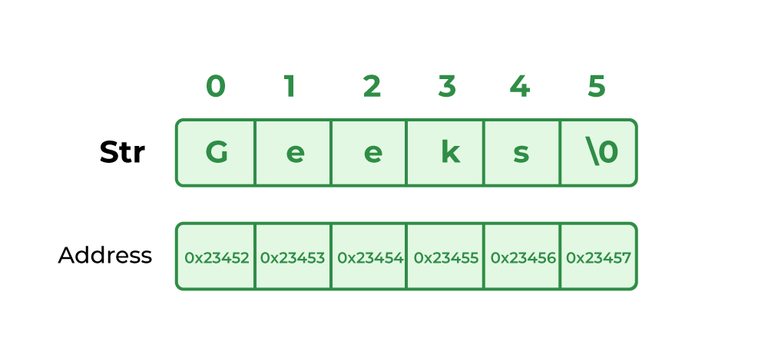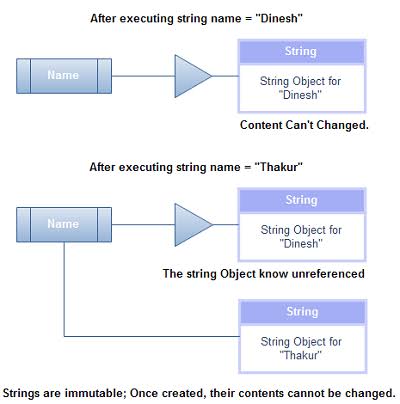Why Are Strings Immutable in Java? Safety And Security and Efficiency Benefits
Why Are Strings Immutable in Java? Safety And Security and Efficiency Benefits
Blog Article
Immutable Strings: A Trick Element in Ensuring Data Uniformity and Reliability
In the realm of information management, the value of immutable strings can not be overemphasized. These changeless sequences of characters play an essential function in supporting the integrity and precision of details within systems. By maintaining a state of immutability, data uniformity is made certain, fostering a structure of integrity whereupon important processes depend. The idea of immutable strings goes beyond simple formality; it is a linchpin in the facility internet of information governance. As we explore the benefits, implementation methods, and sensible applications of immutable strings, a more clear photo arises of their crucial nature in securing the digital landscape.
The Concept of Unalterable Strings
Immutable strings, a fundamental concept in shows, describe strings that can not be customized as soon as they are created. In significance, once a string value is appointed, any type of procedure that appears to modify the string in fact creates a brand-new string. This immutability ensures information consistency and integrity in applications, as it avoids unforeseen modifications to the original data.
Benefits in Data Uniformity

Information uniformity is critical in various facets of software growth, including database monitoring, multi-threaded atmospheres, and dispersed systems (Why are strings immutable in Java?). Immutable strings contribute considerably to achieving this consistency by protecting against data corruption because of simultaneous gain access to. In circumstances where several procedures or threads engage with the very same information at the same time, immutable strings function as a guard versus race conditions and synchronization concerns
In addition, the immutability of strings simplifies debugging and testing processes. With immutable strings, designers can rely on that when a string is established, it will remain unmodified, making it less complicated to map the source of mistakes and making certain that examination situations produce constant results. This integrity in information dealing with eventually causes a lot more stable and robust applications.

Implementing Unalterable Strings
Making sure the immutability of strings calls for a thoughtful technique to their implementation in software advancement. As soon as a string things is developed, one essential strategy is to develop string courses in a means that stops alterations. By making strings immutable, programmers can boost data consistency and integrity in their applications.
To implement immutable strings effectively, programmers need to prefer producing brand-new string things instead than changing existing ones. This technique makes certain that as click here for info soon as a string is designated a value, it can not be changed. Additionally, any type of procedure that appears to customize the string must develop a brand-new string with the preferred modifications as opposed to altering the original.
In addition, utilizing unalterable strings can streamline concurrency management in multi-threaded settings. Since unalterable strings can not be changed after development, they can be securely shared among numerous threads without the danger of data corruption.
Duty in Reliability Guarantee
In software development, the use of immutable strings plays a crucial role in guaranteeing the integrity of data procedures. Unalterable strings, as soon as developed, can not be changed, guaranteeing that the information they stand for stays consistent throughout the application's execution. This immutability residential property gives a degree of assurance that the data being processed will certainly not be inadvertently changed, causing unexpected results or errors in the system.
By incorporating unalterable strings right into software application layout, developers can boost the reliability of their applications by lessening the risks related why not try these out to mutable information - Why are strings immutable in Java?. Unalterable strings help in protecting against information corruption or unexpected modifications, which can be specifically crucial when managing delicate information or when information stability is vital
Furthermore, making use of immutable strings simplifies concurrent processing, as multiple threads can safely gain access to and share string data without the danger of one string altering the material while one more is reviewing it. This aspect adds dramatically to the overall reliability of the software program system, ensuring constant and predictable behavior in information handling operations.
Applications and System Integration
The smooth combination of unalterable strings into various applications and systems is essential for ensuring durable data uniformity and dependability throughout diverse technical settings - Why are strings immutable in Java?. Unalterable strings play a vital role in enhancing the honesty of information exchanges and communications within facility software application communities. By including unalterable strings right into applications, designers can reduce the risks linked with data tampering, unapproved modifications, and unintentional alterations, therefore strengthening the general safety and security position of the system
In the context of system assimilation, immutable strings work as a fundamental element for establishing protected communication channels and helping with seamless data transfers between various elements. Their unalterable nature makes certain that data transmitted in between systems continues to be the same and verifiable, minimizing the likelihood of variances or errors that can endanger the honesty of the entire system. Additionally, immutable strings can boost interoperability in between inconsonant systems by offering a standardized format for data depiction, allowing more efficient data processing and exchange methods across interconnected platforms. By adopting unalterable strings in applications and system assimilation processes, companies can fortify their data infrastructure and maintain the dependability and uniformity of their details assets.
Final Thought
To conclude, immutable strings play a crucial role in preserving information consistency and look what i found reliability in different applications and system combinations. By making certain that strings can not be transformed as soon as produced, the stability of information is maintained, decreasing the risk of errors and variances. Executing immutable strings can significantly boost the reliability of systems, inevitably bring about more accurate and reliable information handling.

Report this page